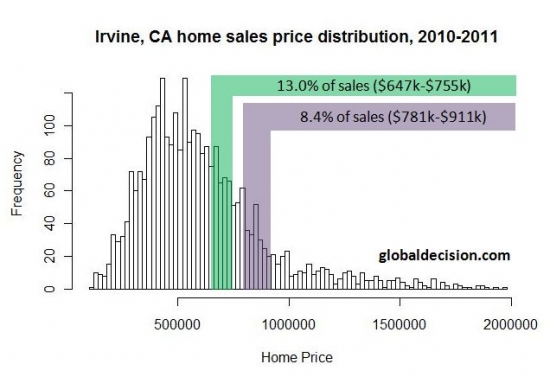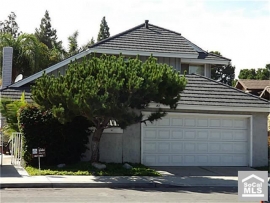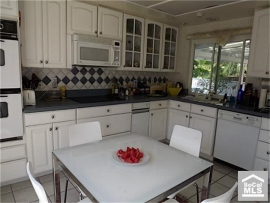By directing the GSEs to relax their eligibility requirements for refinancing, the Obama administration will increase the losses on the GSE portfolio and add to the final cost of the bailout.


Irvine Home Address … 54 CITY STROLL Irvine, CA 92620
Resale Home Price …… $537,375
.jpg)
I've been caught stealing;
once when I was 5…
I enjoy stealing.
It's just as simple as that.
Well, it's just a simple fact.
When I want something, and
I don't want to pay for it.
Jane's Addiction — Been Caught Stealing
Attention renters: the government is stealing from you and giving the money to the loan owners who occupy the houses they can't afford that you are waiting to buy.
Obama has succumb to the pressure from the extreme left that wants to give people free houses. Rather than take a courageous stand and say no to more bailouts and loan owner assistance, the Obama administration has decided to give loan owners a break, increase the taxpayer losses at the GSEs, and ask renters, prudent borrowers, and no-debt homeowners to pay the bill.
I think this policy really sucks.
The $85 billion in savings they are touting will be added to the billions of losses the government has already covered since taking over the GSEs. This is not a low-cost program. That $85 billion in revenue would have helped offset losses at the GSEs. Instead it will go to benefit banks and loan owners. That isn't the way I want my tax dollars squandered.
FHFA removes barriers to refinance more borrowers
by JON PRIOR — Monday, October 24th, 2011, 8:45 am.jpg)
The Federal Housing Finance Agency removed several key barriers to the Home Affordable Refinance Program Monday to allow more underwater borrowers to move into lower-rate mortgages.
HARP, which launched in March 2009, helped 838,000 Fannie Mae and Freddie Mac borrowers with loan-to-value ratios between 80% and 125% refinance. But roughly 7% of those held LTVs above 105%.
In order to assist more of the estimated 11 million borrowers who owe more on their mortgage than their home is worth, the FHFA removed the 125% LTV ceiling on the program.
I got an email from an appraiser right after this was announced. By removing the LTV restriction, the government is taking appraisers entirely out of the refinance transaction. Further, it basically says the value of the collateral doesn't matter. No matter how far underwater the owner is, they are eligible for the refinance. That doesn't sound like a good banking practice to me.
Of course, the servicing banks are happy, particularly BofA which will get a nice revenue boost from all the refinances.

The FHFA also eliminated certain risk-based fees borrowers had to pay and waived certain representation and warranty risk for lenders of the new, refinanced mortgage. An appraisal would also no longer be required if an automated valuation model estimate was already provided by the government-sponsored enterprise.
HARP was already extended earlier in the year, but the FHFA committed to pushing the program end date out even further to Dec. 31, 2013 for loans originally sold to the GSEs on or before May 31, 2009.
The borrower must be current on the mortgage at the time of the refinance, with no late payment in the past six months and no more than one late payment in the past 12 months, the FHFA said.
 At least they are limiting this program to the people who have been paying their bills. I think most of these people should have strategically defaulted, but if they didn't, they are being rewarded for their actions. If this program had been opened up to delinquent mortgage squatters, it would have been outrageous.
At least they are limiting this program to the people who have been paying their bills. I think most of these people should have strategically defaulted, but if they didn't, they are being rewarded for their actions. If this program had been opened up to delinquent mortgage squatters, it would have been outrageous.
Realistically, for the deeply underwater, this merely delays the inevitable. If you are living in Las Vegas, and you have a $300,000 mortgage on a $120,000 house, a refinance at a lower rate isn't going to help you much.
Mortgage insurers agreed to automatically transfer coverage from the old loan to the new loan, and servicers agreed to resubordinate second liens into the new refinanced mortgage.
Fannie and Freddie will release more specific operational details for servicers and lenders by Nov. 15.
The FHFA could not give a specific number of borrowers the revamped program could reach, but in its published frequently asked questions, the agency said the “the best estimate is that by the end of 2013 HARP refinances may roughly double or more from their current amount but such forward-looking projections are inherently uncertain.”
Considering all previous projections have been completely wrong, it is likely this won't reach that many people. And those it does reach will likely strategically default or short sell eventually.
“We know that there are many homeowners who are eligible to refinance under HARP and those are the borrowers we want to reach,” said FHFA Acting Director Edward DeMarco. “Our goal in pursuing these changes is to create refinancing opportunities for these borrowers, while reducing risk for Fannie Mae and Freddie Mac and bringing a measure of stability to housing markets.”
The CEOs for Fannie Mae or Freddie Mac both said the program would definitely reach more borrowers.
“By removing some of the impediments to refinance, lenders can more easily participate in the program allowing more eligible homeowners to take advantage of the low interest rates,” Fannie chief Michael Williams said. “While HARP is only one refinancing program, it is a critical one for those homeowners who may be underwater on their mortgage and facing difficult decisions during these tough economic times.”
It's only critical to the banks who are trying to fend off more strategic default.
“These changes mark another step on the road to recovery for the nation's housing market and underscore Freddie Mac's vital role in making affordable mortgage financing available to America's homeowners and future homebuyers,” said Freddie CEO Charles “Ed” Haldeman.
No, this marks another impediment to the recovery of the housing market and guarantees the inventory from the crash will be metered out over a longer period of time.
In a conference call with investors Monday morning, JPMorgan Chase analysts said the representation and warranty waivers would come through two key areas. Lenders would not be responsible for the original loan file and would also not will be held to new appraisal mistakes because of the AVM.
“We believe this is the most material of all the things they are doing,” analysts said.
It's hard not to become jaundiced with the way our government steals from us and gives money to those who are not deserving (if someone can make a compelling argument why loan owners should be bailed out, I am open to hear it). It really feels like the government is out to make sure anyone who avoided the housing bubble is being punished while those who foolishly participated are being rewarded. Loan owners are given the house while renters are given the bill.
Governments have been redistributing wealth since ancient times. Perhaps I should just accept this and fade quietly into the night. But I can't do that. I find so much of this irritating and outrageous, and I don't read many others who are pointing out the injustices. It's as if loan owners have control of the media and only their point of view matters. Perhaps someday I will feel differently. I guess I haven't picked up enough houses in Las Vegas yet.

New homes in Woodbury under $260/SF
One of the reasons Columbus Grove prices fell so far so fast was because the builder kept building and selling while mortgage financing dried up. It takes active and motivated sellers to push prices down quickly. Without their activities, prices drift down slowly and transaction volumes remain low.
Woodbury has fallen more since the crash than other neighborhoods that are not as nice. I live in Woodbury, and I really like it. I think it is one of the best Villages in Irvine. The only explanation I have for its weak price performance is the plethora of overextended borrowers from the bubble (most of Woodbury was built out during the peak of the housing bubble), and the ongoing activity of the Irvine Company as they try to build out the community.
The new product in Woodbury is selling for considerably less than most people realize. (Median US New Home Price Has Biggest 3 Month Drop Ever) Today's featured property is $259/SF. Remember when most of Woodbury was selling for north of $400/SF?
At this price, today's featured property has a reasonable cost of ownership (the Mello Roos is a guess). I have long maintained the problem with the new product offerings has largely been price. If prices on the new product remains this affordable, sales volumes ought to pick up. We will see.
——————————————————————————————————————————————-
This property is available for sale via the MLS.
Please contact Shevy Akason, #01836707
949.769.1599
sales@idealhomebrokers.com


Irvine House Address … 54 CITY STROLL Irvine, CA 92620
Resale House Price …… $537,375

Beds: 3
Baths: 3
Sq. Ft.: 2074
$259/SF
Property Type: Residential, Condominium
Style: Two Level, Spanish
Year Built: 2011
Community: Woodbury
County: Orange
MLS#: S677619
Source: SoCalMLS
Status: Active
On Redfin: 3 days
——————————————————————————
This two story masterpiece lives like a single family residence! Downstairs, enjoy the attached two car garage, tech center, main floor bedroom and open living room, family room, kitchen combo. Upstairs, enjoy the large loft that be easily be a playroom or entertainment area, huge master retreat with walk in closet, dual sink bathroom and generous sized secondary bedroom. Fixtures include gourmet kitchen with granite countertops, stainless steel appliances and more! Design credit available to customize your flooring! Located in the desirable Village of Woodbury, just outside your door is shopping, parks, pools and more. One of the last opportunities to own a brand-new home in Wodbury. Charming motor courts provide access to oversized 2 car attached garages. Within walking distance to stores, restaurants, entertainment at Woodbury Town Center. Less than two miles from the I-5 and the 133 Toll Road.
——————————————————————————————————————————————-
Proprietary IHB commentary and analysis ![]()
Resale Home Price …… $537,375
Cost of Home Ownership
————————————————-
$537,375 ………. Asking Price
$107,475 ………. 20% Down Conventional
4.18% …………… Mortgage Interest Rate
$429,900 ………. 30-Year Mortgage
$122,824 ………. Income Requirement
$2,097 ………. Monthly Mortgage Payment
$466 ………. Property Tax (@1.04%)
$200 ………. Special Taxes and Levies (Mello Roos)
$112 ………. Homeowners Insurance (@ 0.25%)
$0 ………. Private Mortgage Insurance
$298 ………. Homeowners Association Fees
============================================
$3,173 ………. Monthly Cash Outlays
-$344 ………. Tax Savings (% of Interest and Property Tax)
-$600 ………. Equity Hidden in Payment (Amortization)
$160 ………. Lost Income to Down Payment (net of taxes)
$87 ………. Maintenance and Replacement Reserves
============================================
$2,477 ………. Monthly Cost of Ownership
Cash Acquisition Demands
——————————————————————————
$5,374 ………. Furnishing and Move In @1%
$5,374 ………. Closing Costs @1%
$4,299 ………… Interest Points @1% of Loan
$107,475 ………. Down Payment
============================================
$122,522 ………. Total Cash Costs
$37,900 ………… Emergency Cash Reserves
============================================
$160,422 ………. Total Savings Needed
——————————————————————————————————————————————————-


.png)


 Are they joking? Lenders manage the percentage of distressed sales to within a few percentage points as they liquidate their inventory. If 32% is the lowest in the state, then we are nowhere near the end of problems with distressed inventory. The percentage distressed will remain between 32% and 35% for the next several years. I am shocked they even mentioned this.
Are they joking? Lenders manage the percentage of distressed sales to within a few percentage points as they liquidate their inventory. If 32% is the lowest in the state, then we are nowhere near the end of problems with distressed inventory. The percentage distressed will remain between 32% and 35% for the next several years. I am shocked they even mentioned this.






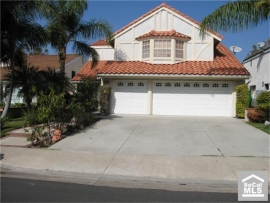
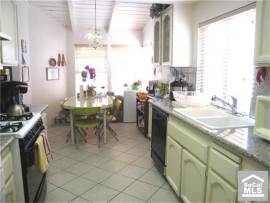










.jpg)

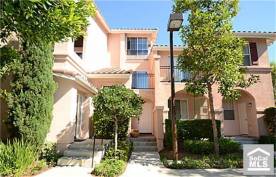







 Conservatives always decry the progressive nature of the tax code. Well, the home mortgage interest deduction is the most regressive tax break possible. The more the borrower makes, the more the tax deduction increases. Low and middle income Americans don't gain much if any benefit from this tax break, and of course, renters get none at all.
Conservatives always decry the progressive nature of the tax code. Well, the home mortgage interest deduction is the most regressive tax break possible. The more the borrower makes, the more the tax deduction increases. Low and middle income Americans don't gain much if any benefit from this tax break, and of course, renters get none at all.